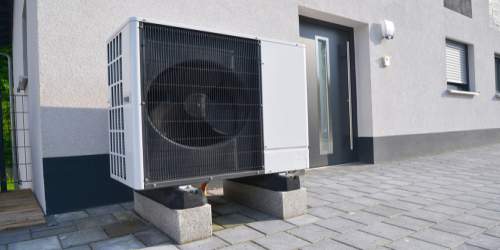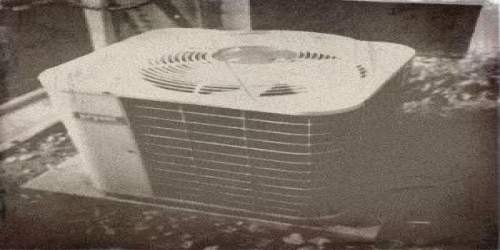Read Time : 3 Minutes
What is a Water Source Heat Pump
If you have found yourself interested in water source heat pumps, then this is the ideal place to find more information. Whether you are looking for a system to install in your home or business, you are sure to find everything you need to know right here.
What Is a Water Source Heat Pump?
A water source heat pump works to move heat from a source of water to your household more efficiently than any other heating and cooling technology that is currently on the market. In fact, it is possible to pump a river or stream through one of these devices with excellent results – especially if the water temperature is around 5-8-degrees Celsius.
It may surprise you to learn that this technology has been used since the late 1940s, even though they are only recently becoming more widely used. Water source heat pumps use the constant temperature of the water as a medium for exchange instead of extracting the heat from the outside air. As a result, the system is able to produce excellently high levels of efficiency.
COMPARE PRICES FROM LOCAL INSTALLERS
Compare prices from local companies fast & free
Enter your postcode to compare quotes from leading professionals. We promise to keep your information Safe & Secure. Privacy Policy
How Do Water Source Heat Pumps Work?
The system itself consists of reverse cycle heat pump units that are connected by a water loop. Each unit offers very specific levels of air comfort, all depending on the zone in which they are installed. During the colder seasons, the heat pumps will transfer heat from the water loop and through the unit’s specially designed refrigerant to water heat exchanger, before moving it into the air.
In more extreme weather conditions, when more heat is required in order to keep the building warm, units will be operating in heating mode. This is why heat is them provided to every individual unit from the water loop. If it happens that there is not enough heat in the water loop, an energy efficient fluid heater can be installed in order to assist the heating process.
The water should be kept as close to the house as possible, so that is will not need to use excessive energy in order to pump. This is because the efficiency levels could decrease as a result, which that affects your energy savings. If the diameter of the pipe is of an adequate size, water can be sourced from a good distance away – especially in a downward direction. When it comes to considering the installation of a water source heat pump, you should also take things such as planning permission into account before you start work. In many homes and locations, permission will be required.
The Advantages of Water Source Heat Pumps
- They generate less CO2 emissions than conventional heating systems.
- The Energy Saving Trust (EST) estimated that such a heat pump could save you between £395 and £2,000 a year depending on which heating system you replace.
- The RHI scheme offers payments to homeowners who have a heat pump, estimated between £2,325 and £3,690 a year for an average four-bedroom detached home (this is going UP in April 2017).
- Electricity must be used to power the pump which circulates the water through the loop, which results in every unit of electricity used by the heat pump, you receive between two and four units of heat, thus making this an efficient way to heat a building.
Types of Water Source Heat Pumps
Closed-Loop System
If there is a stable and sufficient body of water near your home, this form is definitely the one with the lowest cost. A supply pipeline will run through the ground, starting from your home, and ending in the water. It will meet the water supply from at least eight feet under the ground to avoid freezing in the winter. Coils must also be placed in the water source to ensure that it meets the minimum requirements in terms of volume, depth, and quality.
Open-Loop System
This system works to utilise a well or the surface of a body of water while the fluid in the heat exchange runs through the heat pump system. Once it has dispersed through the whole system, the water will return to the ground via a well, recharge well, or a surface discharge. This option is one that is only practical where there is a reasonable and consistent supply of clean water. Alongside this, you need to make sure that all of the rules and regulations that relate to groundwater discharge are completed.
Hybrid Systems
These systems tend to use geothermal resources, or a combination of these alongside natural air from outside. The hybrid systems tend to be placed in situations where the cooling needs exceed the heating ones. An example of this would be a standing column well. This variation of the open-loop system required one of more deep, vertical, wells. The water is brought up from the bottom of a standing column and then returned to the top. The bleed cycle system will cool the column while the heat is being rejected, and warm it up during the heat extraction period.
Financial Incentives
As there is an increasing importance with regards to the production and use of renewable energy solutions, the UK has started motivating businesses and individuals to increase their use of renewable energy in order to reduce their CO2 emissions. The Renewable Heat Incentive (RHI) started in 2011. It provides funds to the engineers of small or medium installations that deliver an acceptable heat load and meet a minimum energy efficiency standard. From 2004 to 2010, energy prices for gas and electricity have increased massively. On top of this, the prices are expected to continue to rise.
Environmental Legislation
There are certain environmental regulations that need to be addressed before installation can take place. You see, the open loop systems alter the temperature of the groundwater, while the thermal plumes will affect hydrochemistry and bacteriology. A license may also be required, depending on the type of system you wish to install. These can be obtained from the Environment Authority, and they should also be contacted with regards to actions that need to be carried out before installation.
The estimates show that ground source heat pumps are able to produce up to 30% of the UK’s heating needs. This has been possible due to new developments in the field of renewable energy. Things like lowered installation costs and the RHI are all contributing factors that have generated interest in heat pumps. In fact, in the London area alone there have been around 1,000 applications for open loop systems in the past year – a huge increase.
Want to Know More?
Have you found yourself interested in water source heat pumps? If you want to know more then simply give us a ring using the number at the top of this page and have a chat.
Find a local installer
Welcome to the biggest directory of UK renewable energy companies





 How does a Heat Pump Work
How does a Heat Pump Work








